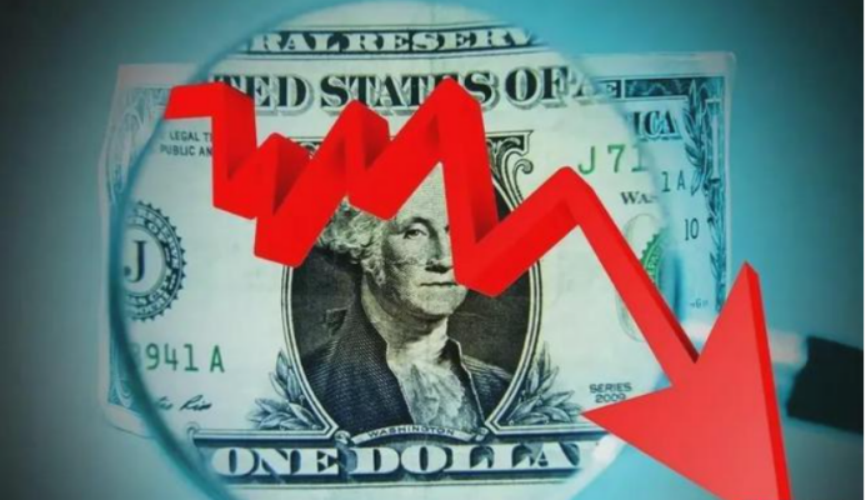
The global rate cut refers to the action of central banks in multiple countries to reduce their benchmark interest rates. This trend usually reflects changes in the global economic situation, such as slowing economic activity and easing inflationary pressures. Recently, the global rate-cutting cycle has begun. Despite the Fed's delay, a number of central banks have been waiting to act, and several have begun to accelerate the pace of interest rate cuts. Sweden's Riksbank, for example, became the second G10 central bank to ease monetary policy on May 8, 2024, when it announced a 25 basis point cut in interest rates from 4% to 3.75%. In addition, Nomura Securities said in its latest report that between now and the end of June, the European Central Bank, the Swiss National Bank, the Bank of Canada, the National Bank of Poland, etc., will also cut interest rates, while the Federal Reserve is likely to make its first rate cut in July. At the same time, more G10 central banks are sitting tight, constrained by inflation, employment, economic growth and other factors, and worried that cutting interest rates before the Fed could lead to a rapid depreciation of their own currencies.
The immediate reasons for global interest rate cuts may include slowing economic activity, easing inflationary pressures, and a shift in monetary policy. For example, the energy crisis caused by the conflict between Russia and Ukraine, the tightening of monetary liquidity caused by the sharp interest rate hike in the United States, and the high risk aversion caused by the sharp depreciation of some currencies may prompt the central bank to take measures to cut interest rates. The main impact of the global interest rate cut is that, first, the impact on the economy, with the global monetary policy shift, the world economy is expected to accelerate recovery, creating more opportunities for the export of countries, which is a big good for the export market of countries, and can increase foreign investment and cooperation to a greater extent, which will further stimulate the export trade of countries. So as to achieve the purpose of improving the economic level.
Second, the impact on consumers and enterprises, interest rate cuts mean that the global capital will be more abundant, the cost and difficulty of borrowing for enterprises will be greatly reduced, further encouraging enterprises to increase investment, expand production scale, at the same time, the most direct impact of interest rate cuts is to reduce the loan interest rate, loan costs are reduced, monthly payments are reduced, thereby reducing economic pressure. Consumers' purchasing power will get a big boost, and consumers may increase their thoughts about buying homes, cars or other big purchases. Promoting the prosperity of the consumer market can further stimulate economic growth.
Third is the impact on financial markets, interest rate cuts usually lead to a rally in stock and bond markets, because lower interest rates reduce borrowing costs, improve market liquidity, and improve investment returns. Lower interest rates make it easier for companies to get investment, greatly reducing the financial costs of companies, and raising the earnings expectations of companies, which drives the rise in stock prices. At the same time, bond yields also fall as interest rates fall, causing bond prices to rise steadily. However, if the rate cut is too large or too fast, it may also trigger excessive volatility in financial markets and even lead to a financial crisis.
To sum up, the impact of global interest rate cuts is complex and far-reaching, and various factors need to be considered comprehensively to evaluate its advantages and disadvantages. The impact of global interest rate cuts on consumers varies by region, economic environment and personal circumstances, in the context of interest rate cuts, investors need to pay close attention to changes in the global economy and financial markets, according to their actual situation and economic environment to assess the impact of interest rate cuts on their own policies, and make reasonable investment decisions. At the same time, central banks need to weigh various factors and formulate appropriate and flexible monetary policies to cope with the challenges of the global economy and financial market, and further achieve the goal of stable economic growth and price stability.

報告顯示,中國電力投資加速增長,預計2024年電網基建投資將超過5300億元。
近日,市場迎來了一則引人注目的消息:工業巨頭3M公司(MMM.N)在本周五公布了其季度業績報告,隨後股價飆升至近兩年來的
最近,外媒給OpenAI算了筆賬,今年可能要血虧50億美元。
近日,巴黎奧運會和世界鐵人三項協會聯合發布了一項重大決定,宣布因塞納河水質污染問題,原定於近期進行的奧運會鐵人三項首次下
當地時間7月18日,法國巴黎發生了一起令人震驚的持刀襲警事件。
近期,一則重大消息在國際舞臺上引起軒然大波,馬來西亞宣布加入金磚國家。
調查發現,互聯網和智能手機的使用幹擾了韓國近五分之一學生的生活。